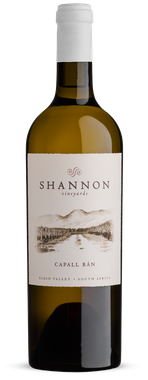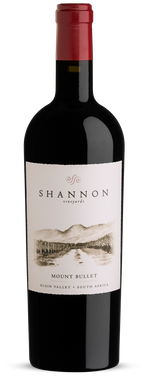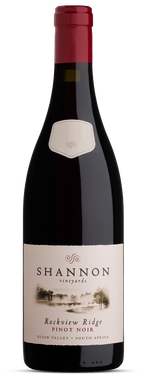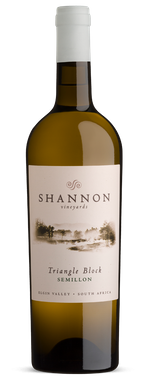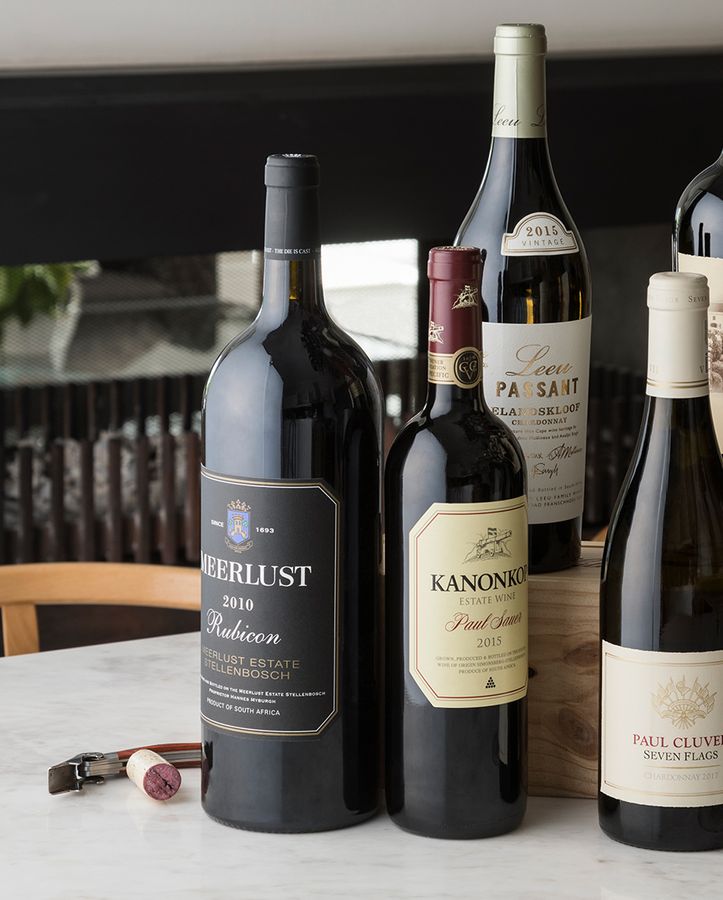Take Shannon Vineyards which shares land with an apple and pear farm in Elgin on the banks of the Palmiet river: 7 hectares pears, 26 hectares apples and 12 hectares grapes. While apples and pears fetch a premium at market, both locally and internationally, grapes struggle to do so, especially at home. Making the mere presence of these 12 hectares remarkable. The resulting wines, however, prove their worth. It was renowned viticulturist, Rosa Kruger, who prevented James Downes (part owner and managing director) from pulling out what was to become their prize vineyard, from which the Mount Bullet Merlot is made. She bought the grapes for five years, but James attests that it only took her two to work it out. Today, it is the oldest Merlot vineyard in Elgin, officially legal at 18 years old. Tim Atkin says: “Merlot is a huge category in South Africa, but there’s only one world-class example: Mount Bullet.” His having rated it 95 points two years in a row. Given Elgin’s general penchant for Pinot Noir and Chardonnay, à la an African Burgundy, Shannon’s focus (and success) in Merlot and Semillon seems to underline James’s belief: The vineyard dictates the evolution. Which brings us to the Downes Family.
The Downes
James Downes is a farmer. He places the walky-talky on the table when sitting down to chat, and from time-to-time contributes to the radio chatter. Making me want to reach across the table and ten-four my co-ordinates to Alpha-Bear…ALSO making me think how handy a voice recorder would have been to keep track of the steady stream of intriguing things James recounts. The Downes Family is of Irish descent, hence the name ’Shannon’, a family name, their grandmother or great-grandmother (I forget which, recorder fail) was a Shannon - echoing the traditional use of the maiden names of female descendants for various vineyard blocks, speaking to the feminist in me. James grew up here, or to be more precise, just across the river on Elgin Orchards, which his father, Keith Downes, managed for most of his life. Entertainingly Mr. Downes senior applied to work at neighbouring Oak Valley right out of Elsenburg and his subsequent letter of employment is framed in James’s cottage on the farm, stating: “You will be paid R10.00 per week and free lodging with David Brier-Danks. Your board will not be provided - that will be a matter for arrangement…but no doubt you will make your contribution towards the larder and thus not starve!” He most certainly didn’t starve. The ground on which Shannon Vineyards is situated today used to be an SA Navy Campsite. In 1997 Keith Downes bought the land and in 1999 James returned from Aberdeen where he had been studying marine biology, or more specifically, selective breeding in Salmon. An unlikely background for someone who turned out to be such a formidable farmer - though one might argue that his scientific mind has been put to good use here. He does retain his love of marine biology as an avid fisherman (on weekends - or as often as possible). James is (also) a keen student of the ecology of the place, describing the two troops of Baboons who seasonally come to wreak havoc: the Oudebrug troop, 28 head; and the Eskom troop, a whopping 68 head. He describes the raucous toads who during breeding season make such a racket, that one can barely hear oneself think - a veritable plague he says. And then there are the Pofadders, having garnered him quite an Instagram following for their antics - a negative in MY books of course, but YOU can follow @shannon_vineyards for his frighteningly frequent sightings. As the consummate biologist, he embraces these sightings and goings-on as part of a healthy ecosystem and a litmus test for the health of his crops.

The Grapevine
Shannon Vineyards is a very well connected winery, being exported to a grand total of 24 countries at last count. Making us quite fortunate to be able to offer you such a wide selection of their wines on home ground. In Elgin, James also does his part to facilitate the ‘grapevine’ if you will, having sold his fruit to a number of notable South African producers, which in the end has led to more permanent arrangements with winemakers Gordon and Nadia at Newton Johnson, who are now responsible for making Shannon’s premium wines at their cellar; and Cathy Marshall, who produce their retail range of wines for Woolworths. Once again proving that no winemaker is an island and that the fruit of Shannon vineyards travel much further than your average table grape.
Merlot to Macushla
As Shannon has hit its stride in terms of winemaking, their product range has expanded exponentially to showcase the true potential of the land. The Mount Bullet Merlot remains the focal point and has retained its quality since being introduced in 2007 - hailed the “Petrus of the Overberg” by Neil Pendock. In South Africa, Merlot remains one of the best selling red grape varietals with a 13% market share, while in the US it has recently experienced a downturn in favour of Pinot Noir (ostensibly due to the bashing it received in the film Sideways). The downturn sparked a Merlot renaissance that has spread across the world. Its historical relevance as one of the pillars of Bordeaux, its ability to flourish in various countries and the stabilising effects of its soft tannins and opulent textures all making a strong argument for the #MerlotMe movement, which culminated on the 7th of November this year. Should you wish to partake of, arguably, South Africa’s finest example of this aristocratic varietal (that may just have found its finest South African expression in the highlands of Elgin) we’d make haste given the exclusive vertical of vintages we have available.
THOUGH, if like the Americans you are easily swayed by Pinot Noir, Shannon’s location in one of South Africa’s Pinot Noir valleys ensures a selection of wines to choose from. While the Rockview Ridge Pinot Noir, with its 93 point Atkin rating is not to be dismissed, the Noble Late Harvest Pinot Noir, the Macushla, drew my attention. One of the ONLY noble late harvest Pinot Noirs, if not in the world, then certainly in South Africa, it showcases the innovation of the Downeses. James noticed the botrytis in 2007 on 2 rows of Pinot Noir they had neglected to pick and started experimenting with straw mats to dry out the grapes, which failed. He reverted back to utilising the botrytis-ridden grapes to create a noble late harvest style wine and in 2009 released the first commercial vintage. They named it ‘Macushla’, ‘My Darling’ in Irish, a term of endearment his grandparents used, in honour of their love. Given the background, one cannot help but feel to be in capable hands when tasting a Shannon wine, a sensation that seems to grow with each passing vintage. We invite you to chart their rise using the Mount Bullet as vehicle, from its first, fateful vintage (2007) to today.
